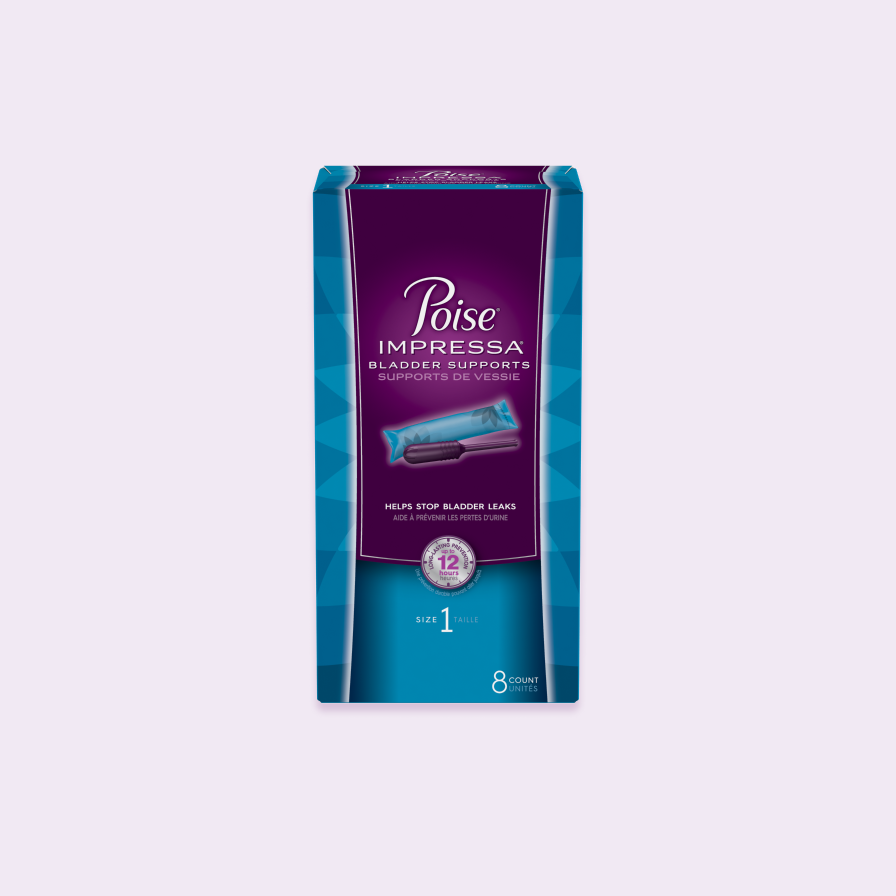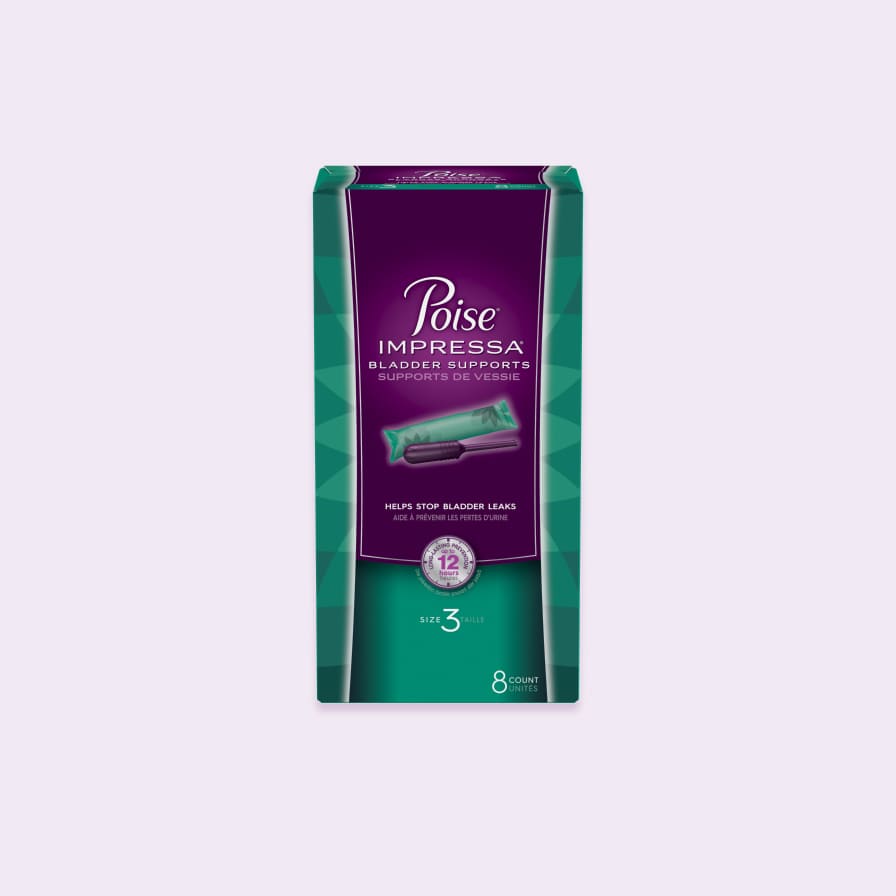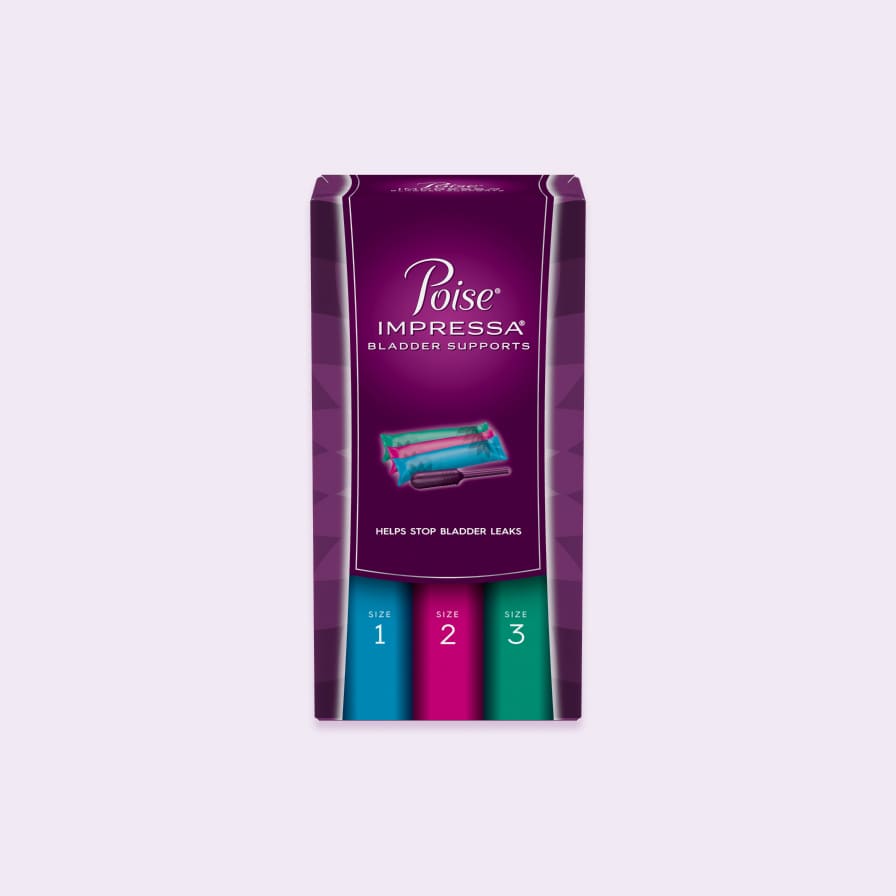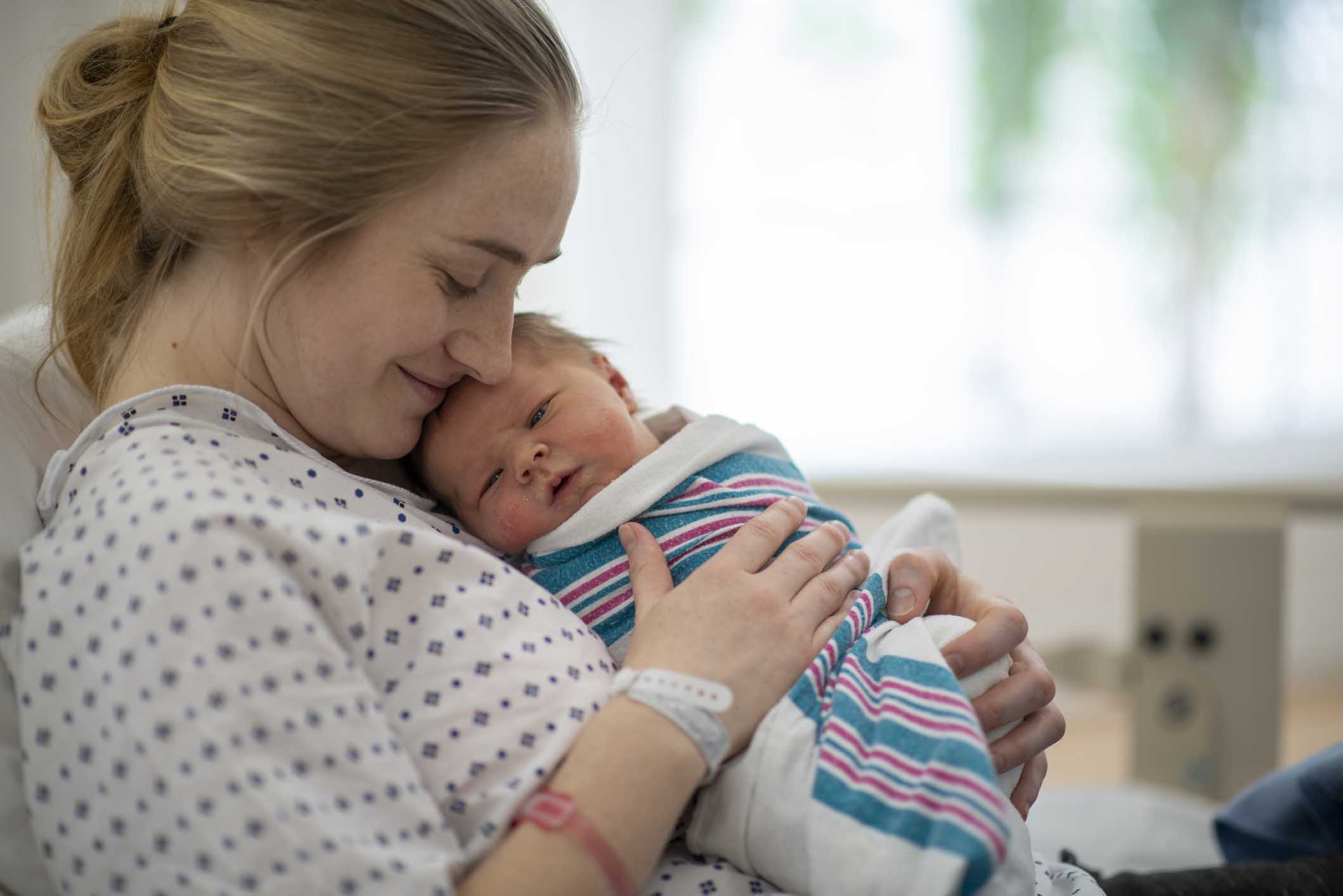Frequently Asked Questions About Poise® Impressa®
How Impressa® Works
- Impressa® comes in three sizes for a more comfortable, personalized internal fit.
- Impressa® is non-surgical and easy to use — you can insert and remove it yourself.
- Impressa® is soft and flexible — which helps with easy insertion and comfort while you wear it.
- Impressa® is disposable — that means no worrying about washing the bladder support; just remove it and throw it in the trash. Do not flush the bladder support.
Impressa® Bladder Supports are designed to help stop leaks comfortably and conveniently.
The Soft-Flex* core design comes in three sizes for a personalized internal fit.
The smooth plastic applicator has a rounded tip for comfortable insertion.
Once inserted, the soft, flexible bladder support adjusts to provide the gentle support you need.
When the right size Impressa® Bladder Support is properly inserted, you may not feel it. Any discomfort when using the bladder supports should be temporary and go away after you have found the right size for you. If discomfort or small blood spots on the product continue after the first 14 days of usage, stop using the bladder supports and consult your doctor.
Impressa® comes in an applicator like a tampon and is inserted into the vagina the same way as a tampon. But that’s where the similarities end. The key difference is that, unlike a tampon, Impressa® does not absorb fluids — it supports your bladder and urethra to help stop leaks before they happen. And because Impressa® is helping prevent leaks – not absorbing them — you can wear it without worrying about having to change it frequently like you would a tampon. It’s important to note that you should absolutely not use Impressa® while you’re on your period.
Learn more about Poise® Impressa® Bladder Supports.
Impressa® Sizing
Impressa® Bladder Supports are available in three sizes, each with a different level of support. Selecting the right size by using the Sizing Kit is important for providing the most effective and comfortable solution that helps stop your leaks from happening.
Available in:
Size: 1
Support: Low
Size: 2
Support: Medium
Size: 3
Support: High
Impressa® Bladder Supports have the same size applicator because "size" refers to the soft, flexible bladder support inside the applicator. All bladder supports fit in the same size applicator.

Impressa® Pricing & Availability
Impressa® Safety & Side Effects
Stress Urinary Incontinence (SUI) and genital prolapse are the most significant consequences of childbirth and occur because of changes to the pelvic floor and muscles. The increase in bladder leaks during pregnancy is common, and vaginal deliveries have a high rate of postpartum SUI because of their impact on the pelvic floor.
Poise® Impressa® Bladder Supports can be a great help for these changes because they help prevent leaks by gently lifting and supporting the urethra (the passage that allows urine to leave the bladder) to help stop urine from coming out. Because of this design, Impressa® typically will not increase postpartum leaks or leaks caused by other factors such as obesity, ethnicity, or multiple vaginal deliveries. It's a good idea to visit your health care provider if your bladder leaks seem to be getting more severe.
- Have pain during intercourse or when inserting a tampon or tampon-like device (this could be an atrophic vagina)
- Often experience difficulty in retaining a tampon or tampon-like device (this could be a vaginal prolapse)
You should also consult your health care provider if you try Impressa® and experience discomfort or it does not reduce your bladder leakage after using for 14 days. You may not have Stress Urinary Incontinence (SUI), but a different type of incontinence that requires different treatment.
To learn more about consulting a health care professional, download the Instructions for Use booklet.- Small blood spots on the product
- Mild discomfort
- Vaginal soreness
- Urinary tract infections
- Vaginal infections
- Increased bladder leakage
- Are under the age of 21
- Are pregnant, may become pregnant or have given birth in the past 3 months
- Have experienced unusual or unexpected vaginal bleeding within the last 6 months>
- Have pain or a burning sensation when you urinate (this could be a urinary tract infection)
- Are experiencing vaginal discharge that smells bad, irritation, soreness or itching (this could be a vaginal infection)
- Had vaginal surgery within the past 3 months
- Have already been diagnosed by your doctor with a severely dry (atrophic) vagina
Using the Impressa®
If you're still experiencing bladder leaks (Stress Urinary Incontinence) three months after delivery, you can try Poise® Impressa® Bladder Supports to help prevent leaks.
Up to 30% of new mothers report Stress Urinary Incontinence (SUI) three months after delivery. Although pelvic floor muscles can be strengthened with exercises to reduce bladder leaks, deliveries can still have a large impact on the pelvic floor. These symptoms should be discussed with a health care provider who will make sure your bladder leakage is reassessed a few months after you start using Impressa®. You do not need a prescription for Poise® Impressa® Bladder Supports, but your healthcare provider can answer any questions about whether or not Impressa® is right for you. If you do decide to manage your SUI with Impressa®, be sure to start with the Sizing Kit to find your most effective and comfortable internal fit.







